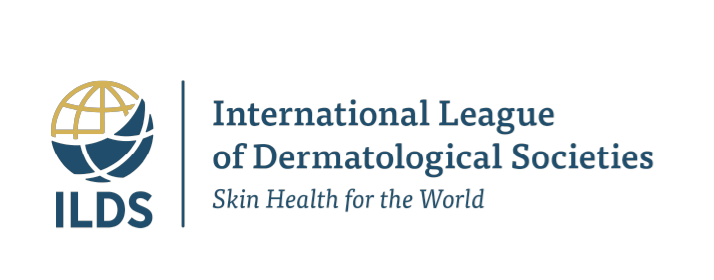Global Allergy & Airways Patient Platform
Bronchiectasis Educational Flyers
Guide
05 Feb 2026
The International League of Dermatological Societies
25 Jun 2025

The International League of Dermatological Societies (ILDS), an umbrella organisation of over 200 professional dermatological organisations across 104 countries, welcomes the commitment to advance global efforts on noncommunicable diseases (NCDs) and mental health as reflected in the Zero Draft of the Political Declaration of the fourth high-level meeting of the General Assembly on the prevention and control of NCDs and the promotion of mental health and well-being. The emphasis on equity, integration, person-centred leadership, and reaching those furthest behind first, offers an important opportunity to realign global health strategies with the lived realities of all affected persons.
Chronic skin diseases, including but not limited to psoriasis, atopic dermatitis, hidradenitis suppurativa, and vitiligo, affect hundreds of millions of people globally, contributing to disability, reduced quality of life, and significant economic and psychosocial burdens. Misconceptions about their contagiousness and visibility often lead to stigma, social exclusion, and even documented workplace discrimination.
The Zero Draft’s emphasis on strengthening primary healthcare systems presents another opportunity to improve the early diagnosis and management of skin NCDs, which are often first identified in primary care settings. However, many primary care workers lack sufficient training in dermatology, which limits their ability to provide effective dermatological care. Enhancing dermatology capacity at the primary level, as supported by the recent Seventy-Eighth World Health Assembly resolution recognising skin diseases as a global public health priority, can help address this gap and promote integrated, person-centred NCD services.
The increasing availability of teledermatology and new AI-based diagnostic tools offers opportunities to enhance access to timely and accurate care, especially in low resource settings where specialist services are often limited. These innovations could be utilised to improve the delivery of NCD services as part of the broader digital health agenda referenced in the draft.
It is important to underscore that skin NCDs can be meaningfully integrated into national NCD strategies and universal health coverage benefit packages if their inclusion is proactively pursued. Failure to do so risks leaving behind large populations who face not only the health effects of these conditions but also the significant financial burden of care, much of which is borne out-of-pocket. These economic impacts extend beyond healthcare costs to lost productivity, educational disadvantage, and social exclusion, particularly for children and young people living with chronic skin diseases
We welcome the Zero Draft’s emphasis on multisectoral action and whole-of-society engagement, which are essential to addressing the visible and socially impactful nature of skin NCDs. We stand ready to work alongside Member States, WHO, and other partners to ensure that the final Political Declaration reflects the full spectrum of NCDs and mental health conditions, including chronic skin diseases, and advances inclusive, equitable responses for all people affected by NCDs.